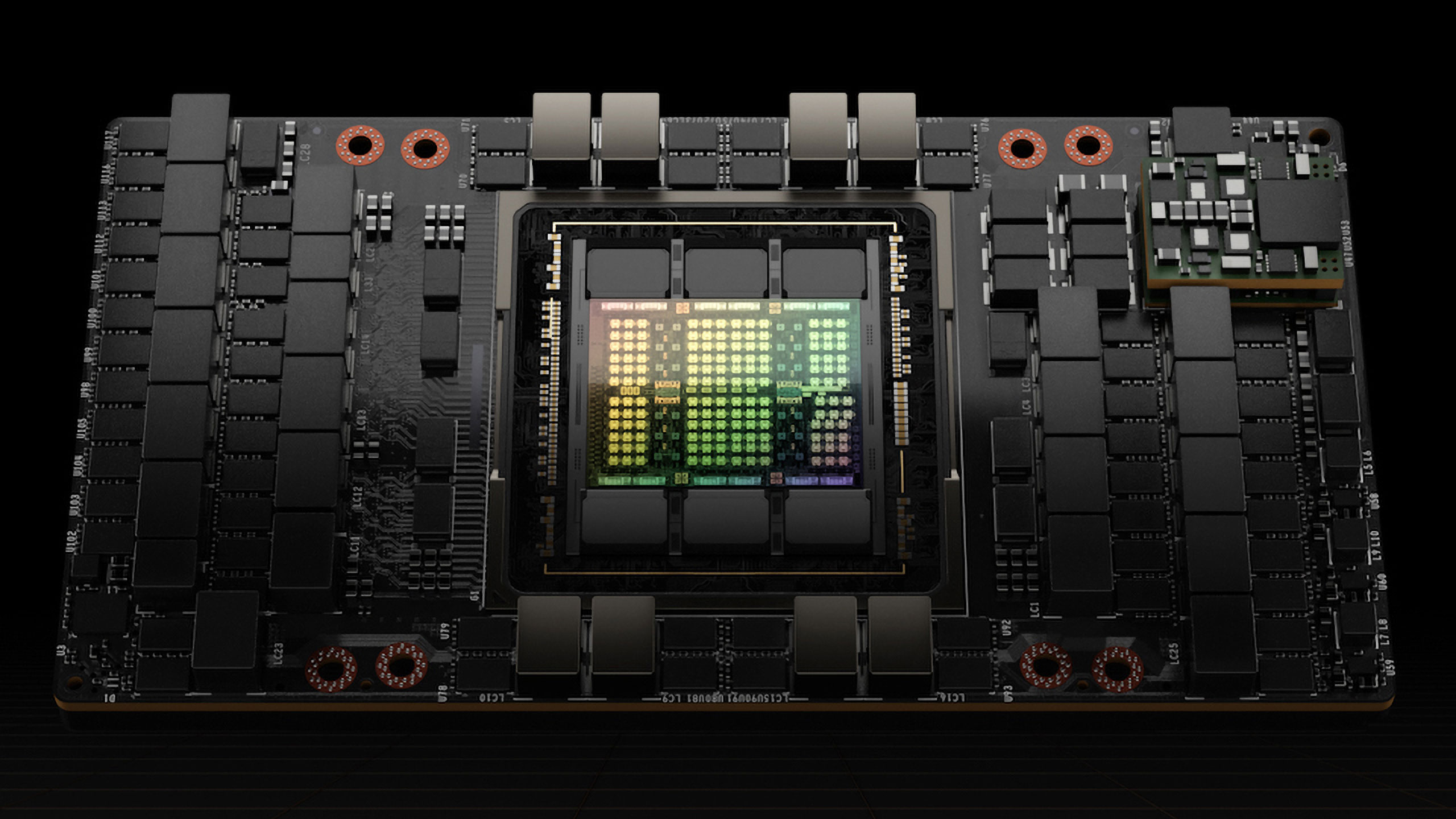US Govt Speeds Up Export Restrictions for Nvidia's GPUs
Sales of Nvidia GPUs to Chinese entities effective immediately.

When the U.S. restricts exports of certain goods somewhere, it typically gives American companies a few weeks to ship already ordered and sometimes paid for goods to their partners. But instead of giving Nvidia and other companies some extra time to ship their AI and HPC GPUs to China, the U.S. Department of Commerce decided to speed up the implementation of its latest export curbs. As a result, Nvidia can no longer ship A100, A800, H100, H800, and L40S GPUs to China, effective immediately.
"On October 23, 2023, the United States Government informed Nvidia […] that the licensing requirements of the interim final rule [concerning AI and HPC processors] dated October 18, 2023, applicable to products having a 'total processing performance' of 4800 or more and designed or marketed for datacenters, is effective immediately, impacting shipments of the Company's A100, A800, H100, H800, and L40S products," an Nvidia's filing with the U.S. Securities and Exchange Commission reads.
On November 16, the U.S. government revealed its plans to require Nvidia and other companies to get an export license from the U.S. Department of Commerce's Bureau of Industry and Security to supply their powerful processors with certain levels of 'processing density' to China, Saudi Arabia, the United Arab Emirates, and Vietnam. These licensing requirements were originally to be effective after a 30-day period, so starting November 16. Instead, the U.S. government decided to speed up their implementation.
As a result, Nvidia needs to get a license to ship its ship its A100, A800, H100, H800, and L40S cards and modules for AI and HPC computing to China and a number of other countries immediately, which essentially means that they can no longer ship these products to their partners. Yet, it is unclear whether this also applies to shipping the GeForce RTX 4090 and L40 processors to the aforementioned countries. If yes, the best graphics cards for gaming could end up in short supply and get considerably more expensive in China, Saudi Arabia, the United Arab Emirates, and Vietnam.
Meanwhile, given demand for Nvidia's high-end products, including A100, H800, L40, and L40S AI and HPC GPUs, the company does not expect any immediate impact on its financial results.
"Given the strength of demand for the Company's products worldwide, the Company does not anticipate that the accelerated timing of the licensing requirements will have a near-term meaningful impact on its financial results," Nvidia said. They'll just sell AI GPUs previously destined for China to someone else, in other words.
Get Tom's Hardware's best news and in-depth reviews, straight to your inbox.

Anton Shilov is a contributing writer at Tom’s Hardware. Over the past couple of decades, he has covered everything from CPUs and GPUs to supercomputers and from modern process technologies and latest fab tools to high-tech industry trends.